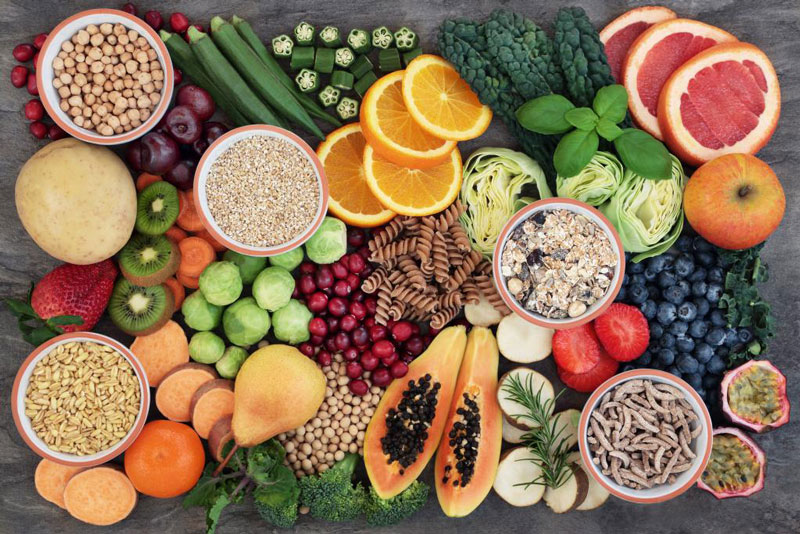
COVID-19 has forced us to stay home more, reduce social interaction and reduce outdoor activities. Here are some tips from the World Health Organization (WHO) to help us maintain a healthy lifestyle during the pandemic.
If you follow the health advice given by WHO experts, you can still enjoy happy and fun time with your family while staying at home. At the same time, spend more time taking care of your health and your family's health. Here are some tips to maintain a healthy lifestyle during the days of social distancing:
1. Practice physical training diligently
Vietnam has recently experienced an outbreak and lockdown in some provinces. Although the COVID-19 pandemic has forced us to limit going out. However, there are still many ways for us to exercise and relax at home. It is important that all ages should be active within their capabilities.
Remember, every time you sit for a long time, you can take a break, spend 3-4 minutes doing some light exercises, walking around the house, around the garden, or doing stretching exercises. Such light exercise will help improve blood circulation and is good for your muscles and joints.
Physical activity benefits both your body and mind. It helps prevent lifestyle diseases such as high blood pressure, and reduces the risk of heart disease, stroke, type 2 diabetes and cancer.
Exercise helps balance your mood and emotions. In the elderly, gentle exercise properly also increases physical endurance, contributes to improving the body's balance, and avoids the risk of falling or injury.
2. Mental health care during social distancing
Even during the period of social distancing and limited going out, you should still maintain a scientific, healthy lifestyle and a reasonable schedule.
To help your body stay in good condition, happy and relaxed, wake up early and don't sleep in to keep your body healthy and alert.
Maintain good personal hygiene, eat on time, and allocate time reasonably between work and rest. Do regular physical exercises to help your body release toxins, helping you feel relaxed and happy.

Social distancing is also the time when you have more moments to enjoy with your family and relatives. You can do homework with your children, play games, and cook together as a family to dispel all worries and be more optimistic in life.
Take advantage of this time to spread kindness and express gratitude to the frontline team fighting the COVID-19 epidemic. This is also a way to keep your heart loving, sharing, and nurturing your spiritual health.
3. Quit smoking
Smokers are at higher risk of contracting the SARS-CoV-2 virus because they frequently put their cigarette in their mouth. Touching your mouth with your hands makes you more susceptible to infection, especially respiratory bacteria.
For smokers, once infected with the virus, they also face the risk of more severe COVID-19 complications because their lung function is already damaged by smoking.
So the global pandemic is the time to quit smoking and start a healthier life.
Some tips to help men quit smoking during social distancing
- Willpower: First and foremost, the most important thing is willpower, delaying cravings as long as possible.
- Deep breathing: You can cut the craving by taking deep breaths. Take 10 deep breaths until the craving passes.
- Drink water: If you crave a cigarette, drink water. It will reduce your cravings. Moreover, this is also a good way to help you drink enough water during the day.
- Do something else to distract yourself from the craving: When you crave a cigarette, you can do something to distract yourself from the craving, such as taking a bath, reading a book, walking around the house, or listening to music.
4. Spend more time with your children, teach them how to overcome the pandemic

During the period of social distancing and lockdown, children are one of the most affected groups due to the closure of schools, entertainment areas, and lack of communication with friends of the same age. At this time, you can play the role of a good parent, replacing the role of teachers and reassuring your children.
WHO advises parents to take advantage of this time to strengthen the emotional bond between parents and children through healthy fun activities at home. The whole family can watch cartoons together, sing fun children's songs to raise awareness of epidemic prevention such as songs teaching how to wash hands,...
Imaginative activities will help children's minds not be confined in a narrow space, helping them become stronger and have better survival skills in all situations.
5. Healthy diet

Maintaining a healthy diet plays an important role during the COVID-19 pandemic. Nutrition can improve the body's resistance to disease and help the body recover more quickly if infected.
While no food or beverage can prevent or cure COVID-19, nutrition plays an important role in supporting the immune system. Healthy nutrition can reduce the severity of other health conditions.
For young children, a balanced diet provides adequate nutrition for growth and intellectual development. For older people, a healthy diet contributes to a healthier and more active life.
Some tips for maintaining a healthy diet:
- Eat a variety of foods, including vegetables and fruits to supplement vitamins and fiber. You should eat whole grains such as rice, corn, potatoes, beans such as red beans, green beans, black beans... Supplement animal protein such as meat, fish, eggs, milk,...
- For snacks, choose fresh fruit and unsalted nuts (peanuts, sunflower seeds, etc.).
- Reduce salt to prevent disease: salt intake should be less than 5 grams/day.
- Limit sugar intake: Limit drinking carbonated soft drinks to avoid taking in too much sugar.
- Drink enough water every day.
- Avoid alcohol and alcoholic beverages: Drinking alcohol cannot kill the virus. Alcohol causes long-term harm such as liver damage, heart disease, cancer and mental illness.
Tips to ensure food safety during the COVID-19 pandemic
There is no evidence that COVID-19 can be transmitted through contact with food or food containers. COVID-19 is generally spread directly from person to person. However, it is important to remember to practice good hygiene when preparing food to prevent any foodborne illness.
Here are 5 principles of ensuring food safety in cooking proposed by WHO:
- Keep kitchen utensils clean.
- Keep raw and cooked foods separate.
- Eat cooked food and drink boiled water.
- Store food at the right temperature.
- Use clean water and safe food ingredients.
Ministry of Health.







![[H] dotMod dotAIO X Pro](http://thevapeclub.vn/cdn/shop/files/h__dotmod_dotaio_x_pro_1faf8f9936ab41d0acec625b36f445b1.png?crop=center&height=20&v=1723177235&width=20)
![[H] dotMod dotAIO X Pro](http://thevapeclub.vn/cdn/shop/files/dotmod_dotaio_x_pro_black_19673d303b75438a9b5e0dddb261b88a.png?crop=center&height=20&v=1723177234&width=20)






